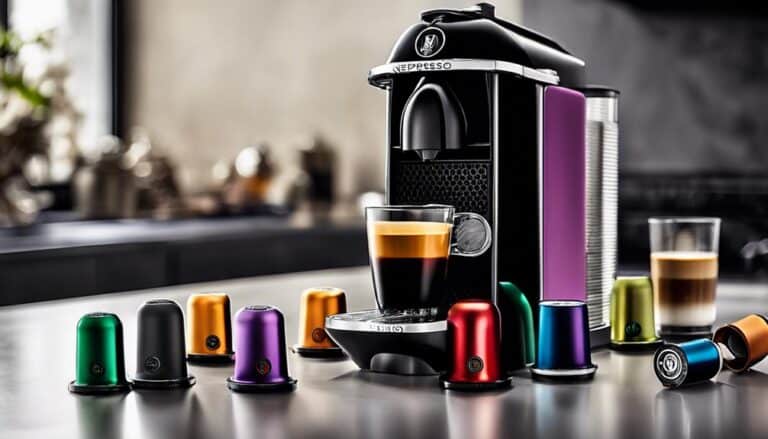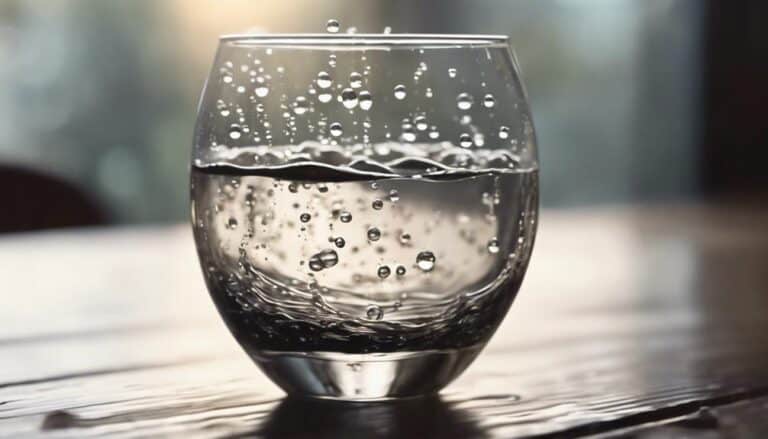Sencha Vs Matcha: Taste Health Benefits and Preparation
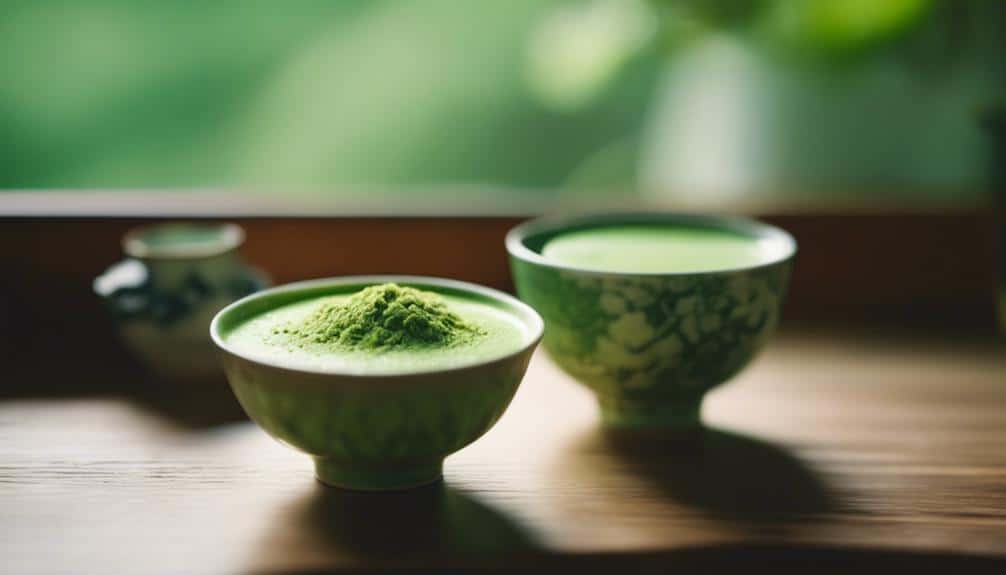
As a tea enthusiast, exploring the nuances between Sencha and Matcha is a fascinating journey into the world of Japanese green teas. From the distinct taste profiles to the array of health benefits each offers, there is much to uncover. The preparation methods alone add an element of intrigue to the comparison. So, let's sip into this discussion and unravel the complexities of Sencha versus Matcha, shedding light on which one might just become your new favorite brew.
Flavor Profiles Comparison
In comparing the flavor profiles of Sencha and Matcha, one immediately notices the distinct characteristics that set these two teas apart. Matcha presents a rich, sweet flavor accompanied by a smooth, savory umami taste, offering a unique experience on the palate. The creamy texture of Matcha enhances its overall appeal, leaving no pungent aftertaste but instead a lingering sweetness that delights the senses. The taste of Matcha is further enriched by vegetable and seaweed notes, creating a complex yet harmonious blend of flavors.
On the other hand, Sencha introduces a bright, vegetal flavor profile with a delightful sweet finish, providing an invigorating twist to traditional tea experiences. Its lighter mouthfeel, akin to juice, offers a different sensation compared to the creaminess of Matcha. Sencha's taste journey continues with a slightly astringent, nutty/fruity aftertaste that adds depth and dimension to the overall drinking experience. Additionally, Sencha's higher catechins and EGCG content contribute to its smooth yet slightly astringent taste profile, making it a compelling choice for those seeking both flavor and health benefits.
Nutritional Benefits Breakdown
When comparing the nutritional benefits of sencha and matcha, it becomes apparent that each offers a unique profile of antioxidants, vitamins, and minerals.
Understanding the antioxidant content overview and the vitamins and minerals profile is essential in determining the health benefits of these two green teas.
Let's explore how the differences in these nutritional components impact our well-being and which tea might better suit individual dietary needs.
Antioxidant Content Overview
Sun exposure plays an essential role in enhancing the antioxidant content found in Sencha products, particularly through the increased catechin compounds in green tea leaves. Sencha powder contains 15.55% EGCG per serving, offering a substantial antioxidant boost. Compared to Matcha, Sencha provides a higher concentration of catechins, making it a healthy choice for those seeking antioxidant benefits.
Additionally, Edible Green® Decaffeinated Sencha powder, with 14.03% EGCG per serving, is a good option for those looking to reduce caffeine intake while still enjoying the health benefits of catechins. The process of decaffeination doesn't notably impact the catechin levels, ensuring that decaffeinated Sencha remains a rich source of antioxidants for overall well-being.
Vitamins and Minerals Profile
The nutritional composition of both Matcha and Sencha showcases a diverse array of vitamins and minerals essential for peak health and vitality. Matcha stands out for its richness in vitamins A, C, and E, along with crucial minerals like potassium and calcium. Additionally, Matcha offers chlorophyll, a potent detoxifier, and a good dose of fiber for digestive health.
On the other hand, Sencha boasts high levels of vitamin C, manganese, and zinc, coupled with valuable antioxidants. Sencha's contribution of vitamin B-6 is particularly remarkable, supporting brain function and energy metabolism.
Both teas provide a wide range of essential vitamins and minerals, reinforcing overall well-being and nourishment.
Preparation Methods Contrasted
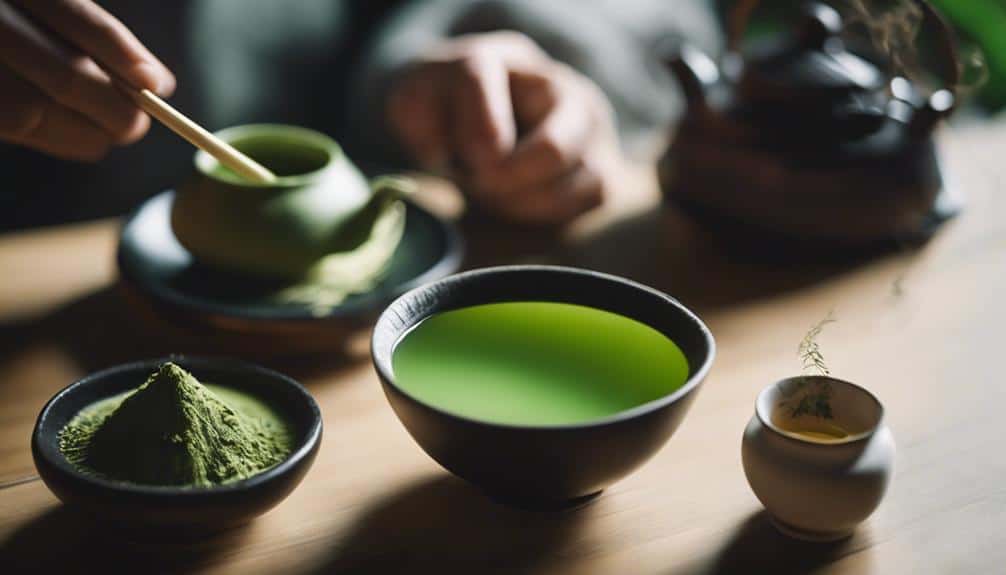
In comparing the preparation methods of Sencha and Matcha, the distinct techniques used highlight the unique characteristics of these two types of green tea. Matcha, a vibrant green tea, is whisked with hot water to create a frothy beverage. This preparation involves grinding shaded green tea leaves into a fine powder, resulting in a rich flavor and creamy texture that sets it apart.
On the other hand, Sencha is brewed by steeping whole tea leaves in hot water, extracting its flavors without grinding the leaves into a powder. Sencha leaves aren't shaded before harvest, giving it a lighter flavor profile compared to Matcha.
The contrasting preparation methods of Matcha and Sencha contribute significantly to their individual tastes and textures, making each type of green tea a unique experience for tea enthusiasts seeking diverse flavor profiles and brewing techniques.
Antioxidant Content Analysis
An in-depth analysis of the antioxidant content in Matcha and Sencha reveals significant disparities in their health-promoting properties. Matcha stands out for its impressive antioxidant levels, containing 10 times more antioxidants than Sencha, making it a potent source of health benefits. However, Sencha offers its own advantages regarding catechins and EGCG content, enhancing its antioxidant properties. For example, regular Sencha powder (Edible Green®) has 15.55% EGCG per serving, showcasing its high antioxidant content. On the other hand, Decaffeinated Sencha powder provides a greater amount of catechins compared to Matcha, making it a healthy choice for those seeking a decaffeinated option. Notably, Edible Green® Decaffeinated offers 14.03% EGCG per serving, ensuring a significant antioxidant boost.
| Type | EGCG Content | Antioxidant Properties |
|---|---|---|
| Matcha | Higher | 10 times more antioxidants |
| Sencha | 15.55% | Rich in catechins and EGCG |
| Decaffeinated | 14.03% | Great alternative for health-conscious individuals |
Caffeine Levels Comparison
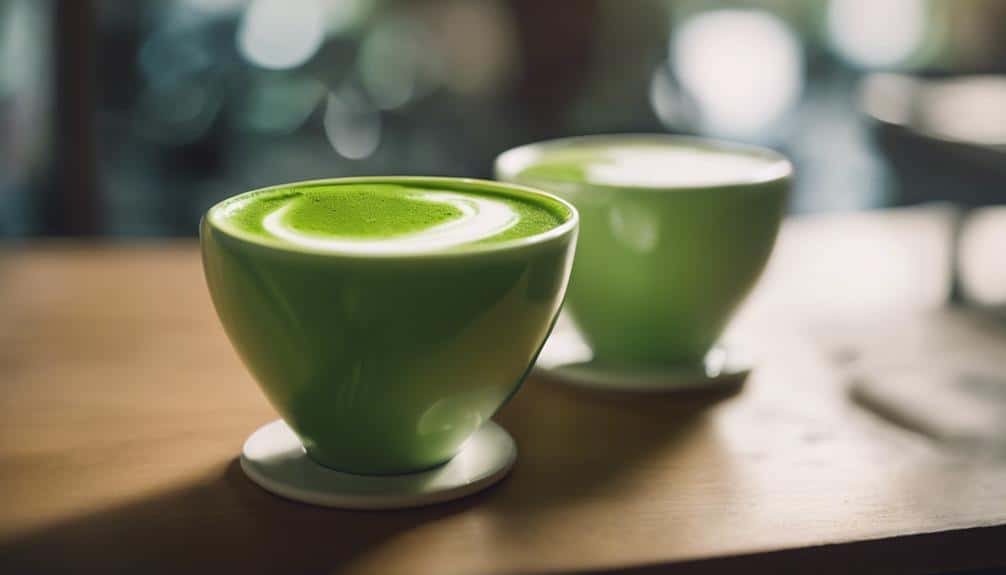
When comparing Sencha and Matcha with regards to caffeine content, it's important to understand how the growing conditions influence these levels.
Matcha, with its shaded growth, contains higher caffeine levels, offering a more potent energy boost.
In contrast, Sencha's sun-exposed cultivation results in lower caffeine but higher catechin levels, presenting a milder, yet still beneficial, stimulant effect.
Sencha Vs Matcha: Caffeine Content
The caffeine content in Matcha surpasses that of Sencha due to the unique shading process employed during its growth. When considering the caffeine levels of these teas, several factors come into play:
- Shading Process: Matcha's shading process enhances its caffeine content.
- Catechins and L-theanine: Sencha's higher catechin levels contribute to its lower caffeine content.
- Impact on Energy Boost: Matcha's higher caffeine levels may provide a more potent energy boost compared to Sencha.
Understanding the intricacies of caffeine content in Matcha and Sencha can help individuals make informed choices based on their preferences for taste, desired health benefits, and the level of energy boost they seek.
Impact on Alertness
In comparing the impact on alertness between Matcha and Sencha, the varying caffeine levels play a significant role. Matcha, with higher caffeine content, provides a noticeable boost in alertness, enhancing mental focus. The stimulant effect of Matcha's caffeine contributes to increased mental alertness.
On the other hand, Sencha contains lower levels of caffeine compared to Matcha, offering a milder stimulant effect. This makes Sencha a suitable choice for individuals sensitive to caffeine, providing a more gentle energy boost without the intense effects of higher caffeine levels.
Matcha's combination of caffeine and L-theanine promotes a state of calm alertness and sustained energy, offering a unique experience for those seeking mental clarity and focus.
Side Effects Comparison
When contemplating the contrast in caffeine levels between Matcha and Sencha, exploring the side effects associated with their consumption reveals significant distinctions in their impact on the body.
Matcha's higher caffeine content can lead to increased energy levels and heightened alertness. However, this may also result in potential side effects such as jitteriness or difficulty sleeping.
On the other hand, Sencha, with its lower caffeine levels, offers a milder energy boost without the same risk of adverse effects. Opting for Sencha over Matcha could be a prudent decision for individuals seeking a more balanced source of stimulation without compromising their sleep or experiencing caffeine-related side effects.
These differences should be taken into account when selecting the ideal tea for your needs.
Brewing Techniques Compared
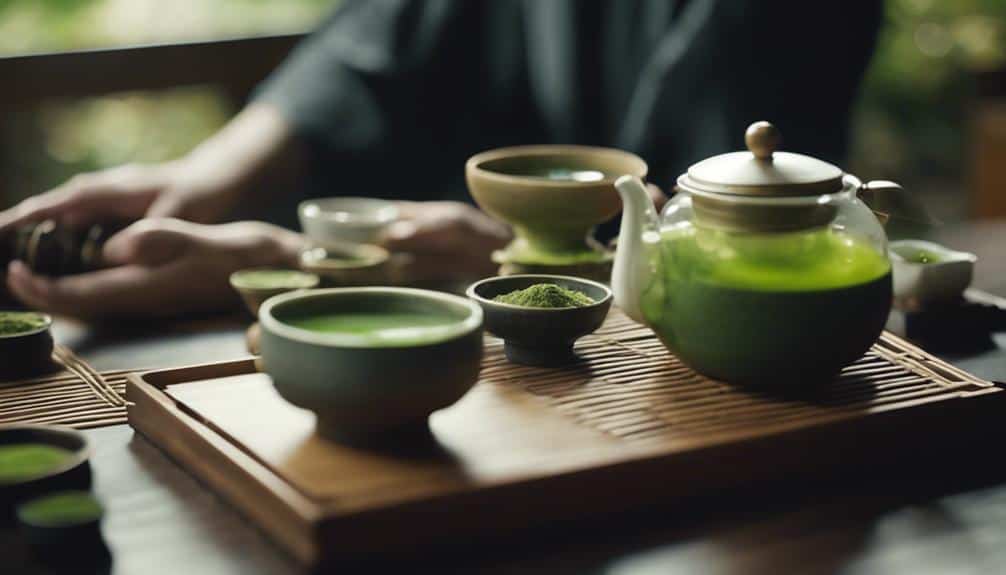
When comparing the brewing techniques of Sencha and Matcha, the process reveals distinct methods that result in unique flavor profiles and textures in the final tea.
Sencha, brewed by steeping whole tea leaves in hot water, extracts a delicate and grassy flavor with a slightly astringent finish. The steeping process typically lasts 1-2 minutes, allowing the flavors to develop without becoming overly bitter.
On the other hand, Matcha, a powdered tea, is whisked with hot water to create a frothy beverage known for its smooth and creamy texture. The Matcha powder is dissolved in water, resulting in a concentrated and rich taste that's both earthy and slightly sweet.
The whisking method used for Matcha ensures a consistent blend and creamy consistency, unlike Sencha, where the flavors may vary depending on the steeping time and temperature.
While Sencha offers a more traditional tea-drinking experience with its nuanced flavors, Matcha provides a unique and vibrant option with its frothy texture and intense taste. Both brewing techniques showcase the versatility of these Japanese teas, catering to different preferences in flavors and textures.
Conclusion
To sum up, the choice between Sencha and Matcha ultimately comes down to personal preference and nutritional needs. Sencha offers a bright, vegetal flavor with a sweet finish, while Matcha boasts a rich, sweet taste with a savory umami undertone. Both teas provide unique health benefits, from antioxidants to vitamins and minerals.
Whether you prefer to steep whole tea leaves or whisk a frothy beverage, both Sencha and Matcha offer a delightful experience for tea enthusiasts.
